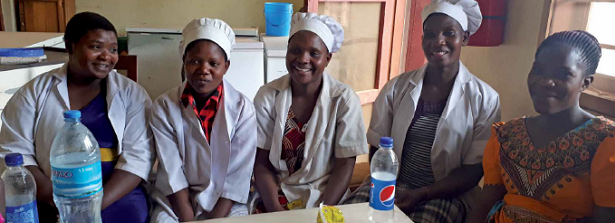Youth in Agricultural Cooperatives: a two-way street?

The world population is growing at a steady pace but in Africa the demographic changes are alarming. By 2030, it is expected that the number of youth in Africa will have increased to 42%. A significant proportion of rural youth are underemployed or unemployed, have marginal income, or limited career prospects. At the same time, there is a burning need to efficiently commercialize the agricultural sector to enhance food security and stimulate broader structural transformation. Engaging youth in agribusiness could provide a win-win solution to both these development problems, and agricultural cooperatives have an important role to play. This new report explores the potential advantages and challenges of cooperative membership for young women and men, and the advantages and challenges for cooperatives to increase youth participation.
Following previous learnings (see here and here and here) a consortium of the Royal Tropical Institute (KIT), the Wageningen Centre for Development Innovation (WCDI) and the Young Professionals for Agricultural Development (YPARD) conducted an explorative study on the role of youth in agricultural cooperatives (i.e. youth engagement, youth roles in governance structures, and decision-making of cooperatives). The study provides insights directly from youth (young women and men, both cooperative members and non-members) through case studies in Rwanda, Tanzania and Uganda.
Being a cooperative member can offer youth opportunities they would not be able to access as individuals. The benefits extend to the cooperatives as well: young women and men are able to sustain (ageing) agricultural cooperatives and bring new ideas and technologies. Access to information and training is seen as a key benefit and a main reason for youth to join a cooperative. In particular, peer-to-peer learning and intergenerational exchange are of great value to young members. Cooperatives can also increase the network of young farmers.
There is still little recognition for youth engagement in agricultural cooperatives. Furthermore, youth also often have a negative perception of cooperatives, and their internal governance structures. This shows that there is a need for improvement. To address some of the constraints (e.g. access to land and finance) that limit youth participation in agriculture in general, and in cooperatives specifically, the involvement and commitment of a range of stakeholders (e.g. policy-makers, organizations working with agricultural cooperatives, agricultural cooperatives and the private sector) is key. Based on the findings of this research, recommendations for organizations working on youth inclusion in agricultural cooperatives and agricultural transformation in general are included in this report. Outputs of this study can also be useful in shaping youth interventions in current projects and activities.
A workshop will be organized half of May 2018, as part of the Community of Practice meetings, to present the research outcomes and allow organizations to share their experiences regarding youth inclusiveness in agricultural cooperatives. In case you are interested in joining this meeting, please contact .
The summary report “Youth in Agricultural Cooperatives: a two-way street?” can be found here.







We Are up to 55 members in our group as a full-time farmers, but lack for mechanics agriculture machinery, I am a chairman for this group please sir how you are going to help us to achieve this thanks sir.
Cooperative in Tanzania previous its seems like based only for old age people(parents) due to lack of awareness & background perception /hangover towards cooperative in Tanzania but now its order from prime minister of Tanzania (Hon. Kassimu Majaliwa) stated that for all farmers in Tanzania especially based in Coffee crops and dairy farm should be follow the channel of Cooperative to sell his or her products rather than middle man control market system therefore through this report we expect greater outcome from the youth to become and establish their own cooperative (Hub center) for better achievement.